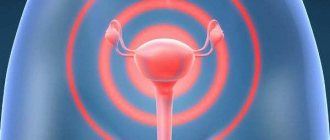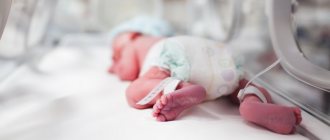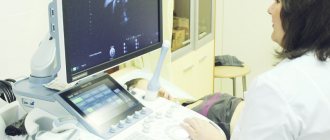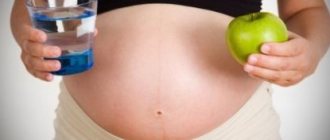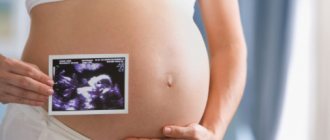Why do people lose weight during pregnancy in the first trimester?
Weight loss during pregnancy without toxicosis
Second trimester
Third trimester
For a pregnant woman, weight gain is quite common. And if in the first weeks and months of pregnancy new kilograms are added slowly and imperceptibly, then later the weight grows more rapidly. As a rule, there is some gain in each trimester, but weight loss during pregnancy is also possible.
The doctor managing the pregnancy monitors weight indicators: at each appointment, the woman steps on the scale, and the weighing results are recorded in the examination card. It is important that a woman controls her weight herself. To do this, you need to weigh yourself every week and record the resulting numbers in a diary or calendar. Then it will be possible to easily track the dynamics of weight, its increase or decrease.
According to the norms, weight gain is considered optimal - 12-15 kg during the entire pregnancy. Excess weight can complicate pregnancy and cause difficulties during childbirth and the postpartum period. But you need to understand that each organism is individual, and what is good for one is unacceptable for another.
Weight loss during pregnancy is not so rare, although it seems somewhat unnatural. In some cases this is the norm, and in others it is a serious signal of trouble in the female body. When is there no reason to worry, and when is it necessary to take urgent action?
There are several reasons for weight loss during pregnancy; each of the three trimesters has its own characteristics.
Pregnancy weight
Why do people lose weight during pregnancy in the first trimester?
Losing weight during pregnancy often provokes such an unpleasant phenomenon as toxicosis. Nausea and lack of appetite force you to give up your usual foods and eat less. The situation is aggravated if vomiting, diarrhea and increased salivation are added to these symptoms - in this case, significant fluid loss occurs, which leads to even more rapid weight loss during pregnancy.
urgently inform the doctor observing her about all this . If she is not yet registered with the antenatal clinic, you need to go to the clinic at your place of residence or to a private clinic. Toxicosis can threaten the normal course of pregnancy; it can be dangerous for both mother and child.
In severe cases, when vomiting occurs several times a day and the woman is unable to eat, she may be advised to go to hospital. With timely treatment, unpleasant consequences can be avoided.
If weight loss due to toxicosis is small and there is no dehydration, then, as a rule, there is no cause for concern.
A pregnant woman can alleviate her condition; there are some ways to do this:
- It is necessary to temporarily eliminate the effect of irritating factors - sharp and unpleasant odors and flickering light should be avoided;
- A pregnant woman is obliged to devote more time to rest, get enough sleep, and avoid overwork;
- Sudden movements provoke nausea, so they must be avoided; There is no need to rush to get out of bed in the morning. Have a cracker or dry biscuits on hand, chew them slowly, lie down a little longer and only then, without making sudden movements, get up;
- When you have toxicosis, it is very important to eat right. Nutrition should be complete and balanced. Spicy and fatty foods and foods with harmful food additives should be excluded from the diet. Pregnant women are advised to eat more often, but in small portions.
- Citrus fruits help cope with an attack of nausea - you can try chewing a slice of lemon or drinking a glass of water with its juice, but provided that the woman does not have stomach problems.
If the expectant mother is concerned about the manifestations of toxicosis, she should not neglect going to the doctor: if there is no reason to worry, the doctor will dispel her doubts, and if not everything goes smoothly, timely treatment will help avoid possible problems.
What should a pregnant woman know about weight control?
In the first half of pregnancy, a woman comes to the doctor every month. Before the appointment, she must be weighed, and at the appointment the doctor evaluates the monthly weight gain, increase in abdominal circumference and the height of the uterine fundus. Based on all this, he can make a conclusion about whether these indicators fit into the accepted standards or not.
You need to properly control your weight in the morning on an empty stomach. This should be done not once a month, but at least weekly.
Temporary, subtle changes in weight gain and loss during pregnancy are absolutely normal. That is, the expectant mother can lose weight in one week, and in the next week gain weight back to the original figures. Only sudden weight gain or loss has a negative impact on the health of a pregnant woman and is perceived by the body as stress.
Many mothers are too afraid to gain excess weight, even during pregnancy they set some limits or restrictions on their diet. Weight loss in this case is natural and indicates that there is not enough nutrition for the baby.
The principles of healthy eating (frequent, 4-5 times a day, fractional meals in portions of 200-250 g, boiled and stewed foods instead of fried, a minimum of fatty foods, baked goods and sweets) have not been canceled during the period of bearing a child. This diet will allow the body to better digest food and absorb nutrients under conditions of double load on the internal organs (liver, kidneys).
Useful: Insomnia in pregnant women in early and late stages
Moreover, such nutrition will help not gain excess weight and provide the child with useful substances, and not empty calories. Also, with this diet, it is possible to minimize such frequent phenomena during pregnancy as heartburn and constipation.
Weight loss during pregnancy without toxicosis
Sometimes this happens: a pregnant woman does not suffer from toxicosis, her appetite is excellent, but at the same time she is losing weight... Usually this happens in the first trimester. Some women experience significant weight loss, reaching up to 10 kg, and this in just one trimester! True, it happens that subsequently they quickly catch up, and by the end of the pregnancy they can gain more weight than normal. In any case, a sharp loss of weight during pregnancy is a reason to urgently consult a doctor , because the health of an unborn child is worth being on the safe side.
It has been noticed that the more a woman weighed before pregnancy, the more kilograms she loses. Therefore, it is obese women who most often experience weight loss in the early stages of pregnancy. It can be assumed that in this way nature itself helps the body prepare for pregnancy and childbirth, because extra pounds can interfere with this.
No one can accurately predict how the mother’s body will behave during pregnancy. Only a doctor is able to determine what is normal and what is pathology in this particular case.
Reasons for weight loss in the second trimester
As a rule, weight loss in pregnant women is much less common during this period than in the first and third trimester. The fact is that during this period the child grows and develops most intensively. Typically, women gain between 4-6 kg during this period. But still there are exceptions to the rules.
During pregnancy, a woman is generally characterized by special emotional lability and rapid mood changes, a tendency to worry and worry about various, even minor reasons. Therefore, weight loss may be a consequence of a stressful situation and changes in the pregnant woman’s daily and rest routine.
You should immediately report weight loss in the second trimester to your doctor, since there are no grounds or physiological reasons for losing weight at this stage of pregnancy. If the weight still falls, it means there is a problem with the health of the mother or child. There may be certain diseases or metabolic pathologies. The doctor should promptly conduct additional examinations that will exclude the most common causes of weight loss in the second trimester of pregnancy.
Second trimester
Early toxicosis usually stops by the beginning of the second trimester. But the weight loss it causes can last until the 20th week of pregnancy. Then the weight returns to its original level and then begins to increase.
However, there are cases when the expectant mother begins to lose weight in the middle of pregnancy. In this case, a consultation with the doctor observing her is required . Perhaps this process is associated with hormonal changes occurring in the body. If a woman regularly visits a doctor, the results of tests and examinations are normal, then there is no reason to worry.
However, the expectant mother needs to continue to closely monitor her own weight. After a long period of weight loss, rapid weight gain may begin - to avoid sudden changes, a woman needs to carefully monitor her diet.
Diagnostics
To say why the weight loss occurred, whether it is normal or pathological, additional diagnostics need to be carried out. The list of necessary measures includes laboratory and instrumental methods, but a doctor can specifically say which of them are indicated for a woman. Based on the clinical situation and expected diagnosis, the following may be prescribed:
- General blood and urine tests.
- Blood biochemistry (electrolytes, protein, creatinine, urea, bilirubin, inflammation indicators, tumor markers, antibodies, hormones).
- Microbiological and virological tests.
- Ultrasound of the uterus and internal organs, etc.
If there is a need for this, then related specialists are involved in the diagnosis: infectious disease specialist, endocrinologist, hematologist, etc. After eliminating all unclear points, the doctor makes a final conclusion about the causes of the disorders. And since weight loss during pregnancy can have adverse consequences, you need to immediately begin correcting the pathology. And in the absence of significant deviations, a woman should not worry.
Weight gain during pregnancy is a natural phenomenon that is caused by many factors: the growth of the baby in the womb, an increase in the amount of amniotic fluid, and hormonal changes. But it also happens that the expectant mother loses kilograms in the process of bearing a child. What causes weight loss during pregnancy, how to diagnose this condition and how to eliminate the problem, we will tell you in this article.
At every routine examination with a gynecologist, a pregnant woman must step on the scale, and subsequently the device’s readings are recorded in the patient’s chart - thus, the weight of the expectant mother is monitored throughout the entire period of bearing the child. There are certain norms for weight gain and the doctor closely monitors any deviations. For known reasons, a pregnant woman should gradually gain kilograms, but weight loss is not always considered the norm. Sometimes the reasons for this phenomenon are completely harmless, but sometimes they can become evidence that something is wrong with the health of the expectant mother. Let's take a closer look at the factors that can cause a pregnant woman's weight to decrease:
- Toxicosis is considered the most common cause of weight loss during pregnancy. Firstly, constant nausea does not contribute to a good appetite; a woman has to give up various foods, and sometimes even switch to dry cookies. Of course, in such conditions there is simply nowhere for extra pounds to come from. Vomiting that accompanies toxicosis leads to dehydration, which also contributes to weight loss. Early toxicosis is considered a natural condition, but only if the urge to vomit does not occur daily and repeatedly, depleting the body. In such a case, the woman requires hospitalization.
- Diseases of viral or bacterial origin, leading to decreased immunity, accompanied by inflammation and deterioration of well-being, also cause weight loss. As a rule, after recovery, a woman gains back the lost kilograms.
- Constant stress and nervous tension are some of the likely causes of weight loss during pregnancy. If the expectant mother's experiences lead to loss of appetite, it is not surprising that her body weight does not increase.
- Excessive levels of progesterone in the blood can lead to deterioration of the gastrointestinal tract. A pregnant woman rarely feels appetite and desire to eat, which also negatively affects her health.
- In the last days of pregnancy, the grown child presses down on internal organs, including the stomach. This results not only in loss of appetite, but also in frequent heartburn. Therefore, a slight decrease in weight before childbirth is common.
- Irrational distribution of work and rest time, overwork are also considered likely factors for weight loss.
- An incorrectly designed menu and poor quality of food that the expectant mother eats can also lead to weight loss. The menu of a woman carrying a baby should be balanced and contain all those substances that support the normal functioning of the body. If there is a lack of any components, body weight may decrease.
- Smoking and drinking alcohol, which are harmful in themselves, can also cause weight loss.
A pregnant woman should pay close attention to her health if weight loss occurs abruptly and in a short time, especially if, against the background of this phenomenon, there is a general deterioration in well-being.
In case of severe loss of body weight, as well as if the pregnant woman has any pathologies, the attending physician may prescribe certain examinations of the body, which include:
- gynecological examination;
- detailed blood and urine tests;
- tests for certain hormones;
- ultrasonography.
Third trimester
Sometimes there are situations when, before giving birth, a pregnant woman’s weight becomes even less than it was when she was registered. This seems strange and incredible! But the child, while in the mother’s womb, takes from her the “building materials” necessary for growth and development, and as a result, the mother herself becomes smaller.
Shortly before giving birth, the weight stops growing and may even decrease, but not more than 3 kg . This phenomenon is also considered one of the harbingers of impending birth.
A pregnant woman may lose weight for other reasons. If, for example, the last months of pregnancy occur in the summer and it is hot outside, the woman sweats, her appetite worsens, and as a result she begins to lose weight.
To summarize, we can conclude:
- Sometimes weight loss during pregnancy is normal and has understandable reasons. However, a woman needs constant medical supervision so as not to miss unwanted changes. To do this, she needs to regularly visit her gynecologist who monitors the pregnancy, as well as timely take the necessary tests and undergo examinations. The expectant mother should closely monitor her condition and report any slight changes that worry her to the doctor.
- When the pregnant woman’s health is normal, the tests are good, and the results of examinations, examinations and ultrasounds confirm that the child’s development (for example, his weight and height) corresponds to the term, then there is no need to worry, especially since this is harmful for the expectant mother. Perhaps what does not fit into the generally accepted framework is an individual feature of her body.
- If, based on the results of tests or ultrasound, the doctor sees any deviations from the norm, then he will decide what to do next.
Normal weight gain during pregnancy
The dangers of weight loss for mother and fetus
The unborn baby takes nutrients from the mother's body. If a mother restricts herself in nutrition, the fetus will still take on the missing elements. If a woman eats fully and still observes weight loss, the doctor leading the pregnancy should definitely know about the disorder. He will order the necessary studies.
Diagnostic examination methods for weight loss include:
- gynecological examination;
- general urine and blood tests (preferably detailed);
- biochemical analysis;
- hormone tests;
- Ultrasound (ultrasound examination).
A biochemical blood test shows whether there is a loss of trace elements in the body. Their lack affects the functioning of the nervous, muscular, cardiac, and skeletal systems. Ultrasound monitors fetal development, the condition and amount of amniotic fluid, symptoms of hypoxia, etc.
A general blood test allows you to exclude blood thickening, which can lead to dehydration or toxicosis. With sudden weight loss, the content of acetone increases, which negatively affects the condition of the fetal brain. General blood tests also reveal this symptom. If you complete all examinations on time, then there is no need to worry. According to indications, the doctor will always be able to correct the developing pathology and prescribe the correct therapy.
Weight loss during pregnancy - normal or not?
Weight is one of the important indicators that the doctor focuses on during regular examinations of the expectant mother. Depending on the build, mass index and characteristics of the course of pregnancy, by the time the child is born, women gain from 9 to 15 additional kilograms, which includes both the weight of the child itself and the increased size of the uterus, amniotic fluid, placenta, and additional blood volume necessary for providing the baby with nutrients and oxygen, as well as a certain percentage of adipose tissue built up by the body in case of unforeseen circumstances.
There are special tables that indicate the average norms of weight gain by month and even by week; it is on them (among other things) that it is customary to focus on when assessing the condition of a pregnant woman. If the average statistical values are significantly exceeded, it means that the expectant mother is trying to eat “for two”, this can lead to disruption of metabolic processes, increased stress on the cardiovascular, respiratory system, joints, spine, liver and kidneys. In addition, with really serious weight gain, complications during childbirth are possible. However, this situation is generally natural.
When a pregnant woman’s weight, on the contrary, decreases, this is a clear indicator that the child receives insufficient nutrients from food and is forced to take them directly from the mother’s body. If this state of affairs persists for a long time, it can harm the woman’s health (hair, nails, skin and teeth are usually affected first), and lead to delays and disturbances in the development of the fetus. The reasons can be very diverse from toxicosis in the early stages to nutritional imbalance and the development of a number of different diseases. In any case, even minor weight loss during pregnancy is a reason for additional consultation with a doctor and more careful attention to changes in body weight and daily diet, despite the fact that in some cases this process can be considered absolutely natural and does not carry any harm.
Second half of pregnancy
In the second half of pregnancy, weight begins to increase. It is important that the increases are uniform, without sudden jumps.
If a woman gains weight, this indicates normal development of the child
. But weight loss is not always a warning sign. The baby can develop quite safely using the resources accumulated in the mother’s body.
If you still experience significant weight loss during pregnancy, you need to tell your doctor about it. He will assess the woman’s condition, inquire about her daily routine, diet, and give the necessary recommendations.
Routine blood and urine tests, ultrasound, Doppler and other quite routine examinations carried out in the antenatal clinic will show whether the child is developing normally and whether the placenta is functioning correctly.
Therefore, it is so important for the expectant mother to regularly visit the doctor throughout the months of pregnancy.
With rapid weight loss in the body
ketones are released (this leads to an increase in acetone and has a bad effect on the child’s brain development). Acetone levels are checked by routine tests. This is why it is so important to inform your doctor about weight fluctuations.
Perhaps the cause of weight loss was illness or stress. It is enough to eliminate the cause of the problem - and everything will work out. If the doctor assures that the test results are fine, then there is no need to worry.
Just before giving birth, weight loss during pregnancy can act as the earliest. The body is preparing for childbirth; various changes occur in it, which can lead to loss of appetite, which leads to weight loss.
What to do when losing weight in an interesting position
Following simple recommendations will help the expectant mother keep her weight within normal limits.
So what should you do?
- Monitor your weight regularly. Tracking your body weight will help you determine if your body is working properly.
- Create a comfortable psychological environment. To do this, the expectant mother needs to limit herself from quarrels and squabbles, and provide her family with support.
- Plan your diet and follow a healthy diet. The health of the baby depends on the quality and quantity of nutrients entering the body of the expectant mother.
- Eat small meals. This measure allows you to minimize the manifestations of toxicosis. The daily diet is divided into small portions and eaten throughout the day.
- Weight loss during pregnancy can be caused by lack of energy due to activity throughout the day. The expectant mother needs full sleep (at least eight hours). Breathing exercises and various psychological techniques, which are recommended throughout pregnancy, have a positive effect.
Let's sum it up
Even if a pregnant woman eats a lot, she may lose weight. Among other reasons, weight loss during pregnancy can also result from poor nutrition.
Weight depends not only on how much a woman eats
, but also on the quality of her food. A pregnant woman's diet should include healthy foods containing sufficient amounts of vitamins and microelements.
Firstly
, slight weight loss should not bother a pregnant woman. You need to weigh yourself regularly and keep a diary: weight, gain or loss, diet. If problems arise, these records will help you find the cause.
Secondly
, visit your doctor regularly and get tested. Don’t be shy about asking your doctor questions. The doctor’s task is to do everything to keep mother and baby healthy. There is no need to be afraid of hospitalization: the unpleasant period will pass, and the child will be healthy.
Third
, take care of your diet: nutrition should be complete and rich in vitamins and microelements. The quality of food is more important than its quantity.
Pregnancy is the only time in a woman’s life when extra pounds suit her. In addition, correct gradual weight gain throughout pregnancy is considered an indicator of the health of the mother and the proper development of the baby.
information
The average weight gain during the entire pregnancy should be 10-12 kg, but here it must be noted that this is for women who have an initial body weight within the normal range. Women whose BMI (body mass index) is 25-30 or more should gain no more than 5-8 kg.
Sometimes it happens that during pregnancy a woman not only does not gain weight, but also loses it.
A pregnant woman has lost weight - is this normal?
If the pregnancy is normal, weight loss in the third trimester is insignificant. Typically, the expectant mother will lose weight by the end of the third semester before giving birth.
Many women are interested in the answer to the question: how many days before giving birth do they lose weight?
Women stop gaining weight about three weeks before giving birth, and in the last seven days before giving birth, their body weight decreases. Since each organism has individual characteristics, weight loss can range from 500 grams to two kilograms.
The reason for weight loss is ridding the body of excess fluid and normalizing hormonal levels. Swelling in the legs slowly begins to subside, and the number of urinations increases. The body is gradually preparing for the birth process.
Pregnant weight loss: diagnosis
If a woman has lost a lot of weight during pregnancy, diagnosis and identification of the cause is necessary. Most likely, it lies in diseases of the internal organs.
The specialist will prescribe the following studies:
- Ultrasound;
- detailed urine and blood tests;
- checking hormonal levels;
- gynecological examination.
Usually, an ultrasound examination of the gastrointestinal tract, liver, and pancreas is performed, since diseases of these organs can cause digestive disorders, poor appetite and weight loss.
Weight loss during pregnancy is caused by atrophic gastritis, celiac disease, and enterocolitis. With these diseases, the intestinal and stomach mucosa atrophies, as a result of which beneficial substances are not absorbed into the blood.
Hormone tests are done to rule out diabetes and hyperthyroidism. With these ailments, appetite is increased, but the person loses weight sharply.
It is also important to monitor the condition of the fetus and placenta. For this, Doppler measurements are performed.
Special diet during the last trimester of pregnancy
In the last 3 months, there is mainly an increase in the weight of the already formed child. According to medical practitioners, at this time it is recommended to focus on vegetables, fruits, nuts, salads, herbs, lactic acid and dairy products, whole grains, dried fruits, excluding or almost excluding meat and meat products, eggs, and white bread from the diet.
3 weeks before giving birth, it is also suggested to exclude dairy and lactic acid products as sources of calcium, as well as animal products (meat, fish, poultry, eggs), switching to vegetables, fruits, decoctions and whole grain cereals. It is noteworthy that in women who follow these recommendations, the weight of the child at birth is about 3 kg, the diameter of the head is no more than 35 cm, and the birth itself is much easier, with minimal damage.
I would like to note the following: the best thing is that switching to healthy food will allow you not only to conceive and give birth to a healthy child, but also to become healthier, lose weight and look younger. Finally, parting words:
- remember that you need to leave the table with a slight feeling of hunger (Academician A.A. Bogomolets);
- let your food be your medicine and your medicine be your food Hippocrates);
- food is far from the only source of energy in this world.
Eat for your health!
Brief references: R. Ravich. First aid using natural means. R. Ravich. How to give birth to a healthy child A.M. Timofeeva. Conversations with children's doctor L.A. Nikitin, Zh.S. Sokolov, L.A. Bludov. Parents of the 21st century, as well as recommendations from the following authors: A.S. Zalmanov I.A. Arshavsky Spouses L.A. and B.P. Nikitins
In the last trimester, weight gain occurs due to fetal growth. Some women even lose weight during this period, as they gradually lose their own extra pounds. During this period, the emphasis is on salads, fruits, greens, light dairy products and whole grain dishes.
Three weeks before the expected date of birth, it is advisable to include a minimum of calcium-rich foods, meat and fish. Some restriction of the diet does not threaten problems with the fetus, but it will allow the expectant mother to start losing pounds.
Causes: loss of appetite during early pregnancy
Every pregnant woman is unique. Pregnancy can occur in different ways, both physiologically and emotionally. Many pregnant women complain of a good appetite during pregnancy. But there are also those who don’t feel like eating at all.
A decrease in appetite may be an alarming signal that something has gone wrong in the body.
A pregnant woman who does not feel hungry and refuses to eat should definitely inform the doctor who is caring for the pregnancy. First of all, a woman should take care of the baby, who needs to properly form, develop and grow. If you lose appetite and weight, your doctor may prescribe a series of tests and ultrasound.
Causes of loss of appetite:
- Toxicosis,
- Hormonal imbalances
- Lack of folic acid in the body,
- Chronic diseases
- Stress.
Loss of appetite should alert a pregnant woman. Pregnancy is not the period when you should lose weight and go on diets. In order for food to be better absorbed, it should be light and low-fat.
Healthy live food during pregnancy
Everyone knows that during pregnancy it is especially important to eat right - eat unrefined foods, eat more greens, fruits, vegetables (both raw and minimally processed), rich in vitamin C and other vitamins, honey, lactic acid products, bran, unrefined cereals, etc. Use excellent natural products to cleanse and nourish your body:
- drink vegetable and fruit juices in the morning before meals; lemon and carrot juices (if you are not allergic) mixed with water are especially useful
- take honey with sour juices, before meals or at night;
- drink living water - boiled water, as you know, is dead water, and pregnant women are not at all recommended to abuse liquids; prefer freshly prepared vegetable and fruit juices to water and broths;
- include in your diet only whole foods - fruits with peels and grains (where possible), vegetables with peels and tops, whole grains, bran - wonderful sources of not only proteins and carbohydrates, but also mineral salts, vitamins and microelements;
- do not overuse meat - there are many other healthier sources of protein of both animal and plant origin: seafood, poultry, eggs, dairy and especially lactic acid products, mushrooms, eggplant, nuts, sesame, soy, legumes, buckwheat, bran, tops vegetables, etc., meat should be consumed mostly lean, no more than 1-2 times a week;
- try to reduce the consumption of table salt to a minimum - this is not healthy and leads to an increase in fluid consumption;
- Reduce the time of heat treatment of products to a minimum - steam, stew with the skin on, bake covered, avoid frying products in oil.
Try to take the most high-calorie and difficult-to-digest foods in the first half of the day, leaving more easily digestible foods for the evening, such as: light low-fat cottage cheese, fermented milk drinks, light vegetable salads with vegetable oil or sour cream. In the evening, after 7-8 pm, it is undesirable to eat, since both your body and the child’s body, which has already adjusted to the mother’s rhythm, are preparing for sleep.
If you feel a strong feeling of hunger, eat dried fruits, nuts, bran (extremely appetizing bran is now available for sale in the form of air flakes), all of them swell when they enter the stomach and create a feeling of fullness even in a small volume, while having enormous energy value for unit of mass.
Eating vegetables and fruits in their raw, unprocessed form is extremely beneficial, which is especially important in the last trimester of pregnancy. In addition to its nutritional value, fiber takes up a large volume in the stomach, unlike high-calorie, refined fast food products. It must be remembered that the absorption of such food depends on the ability to chew food correctly and thoroughly, as well as on the state of the digestive system as a whole.
It has been proven that the fetus of a mother who eats low-calorie foods and experiences physical activity moves much more actively, and movement is a vital function and preparation for a successful birth.


